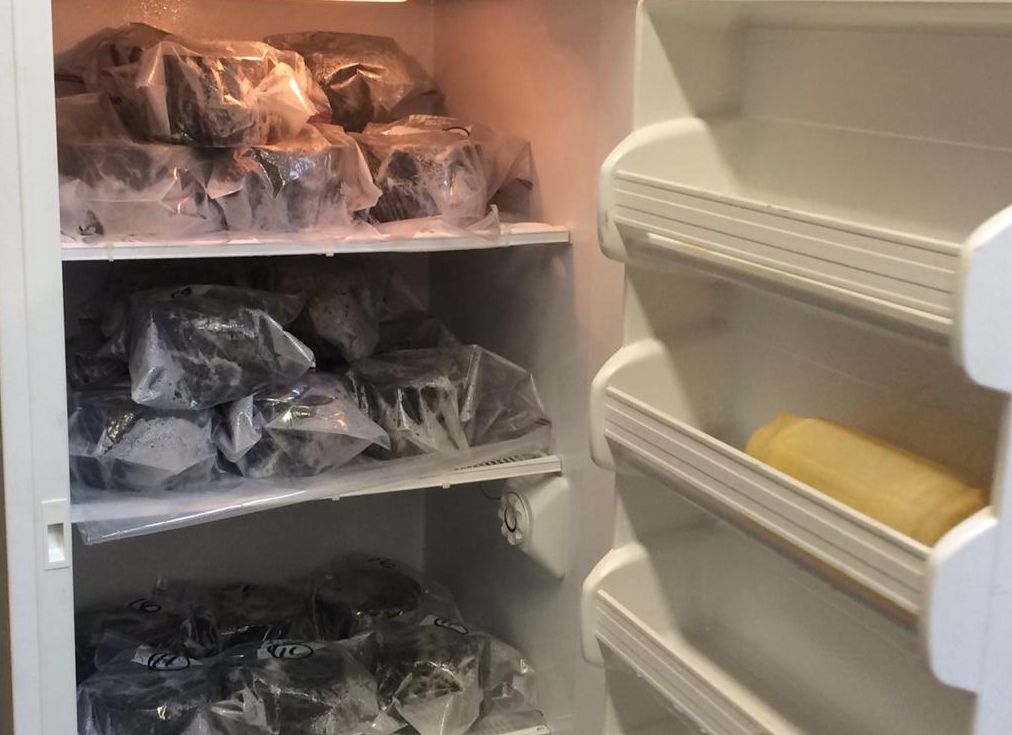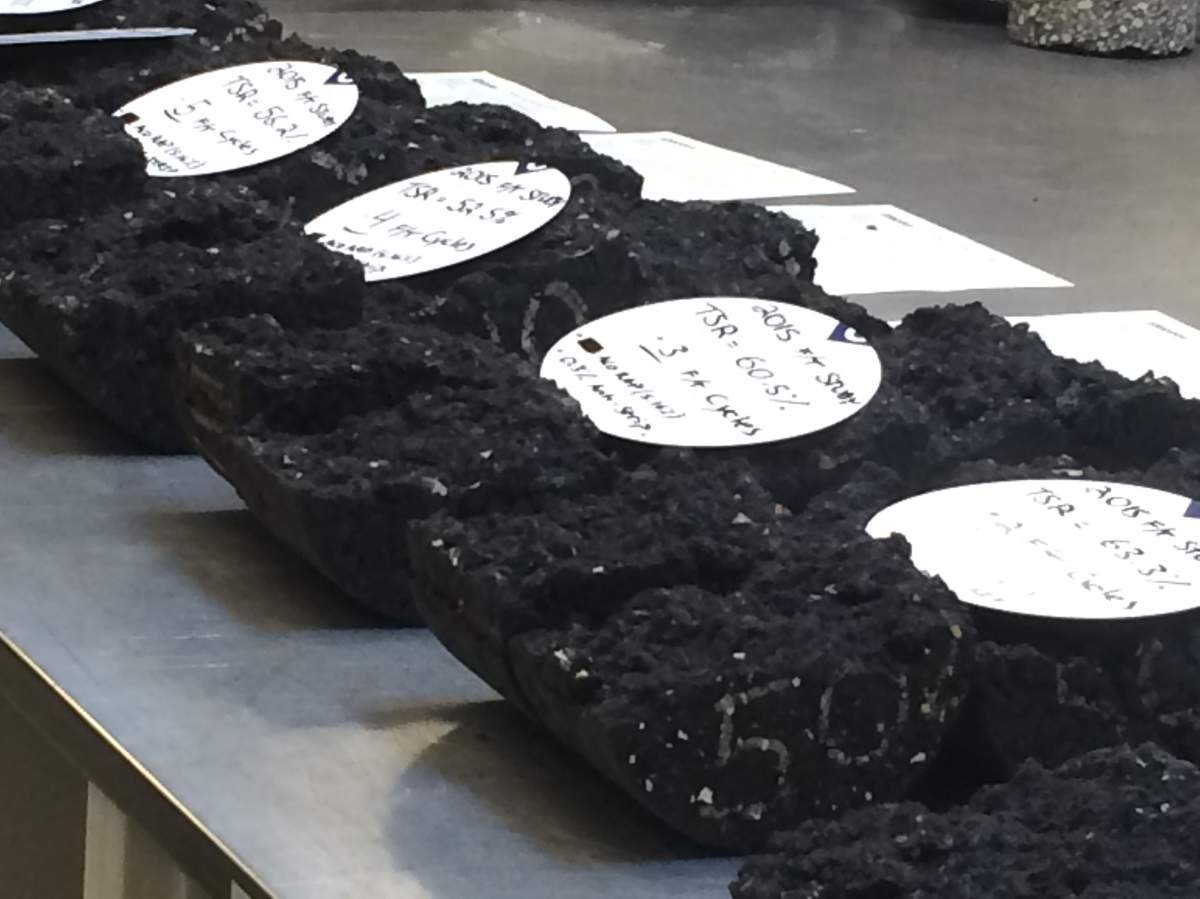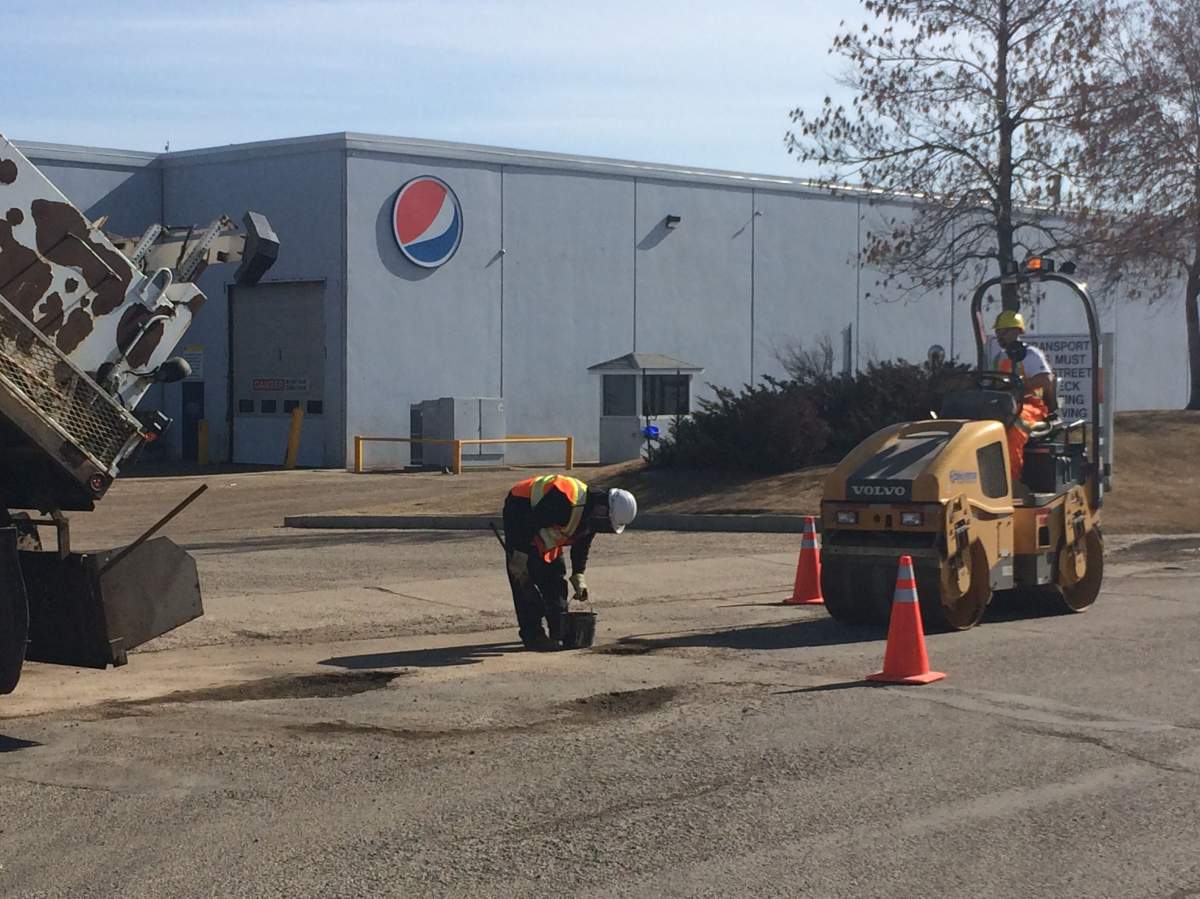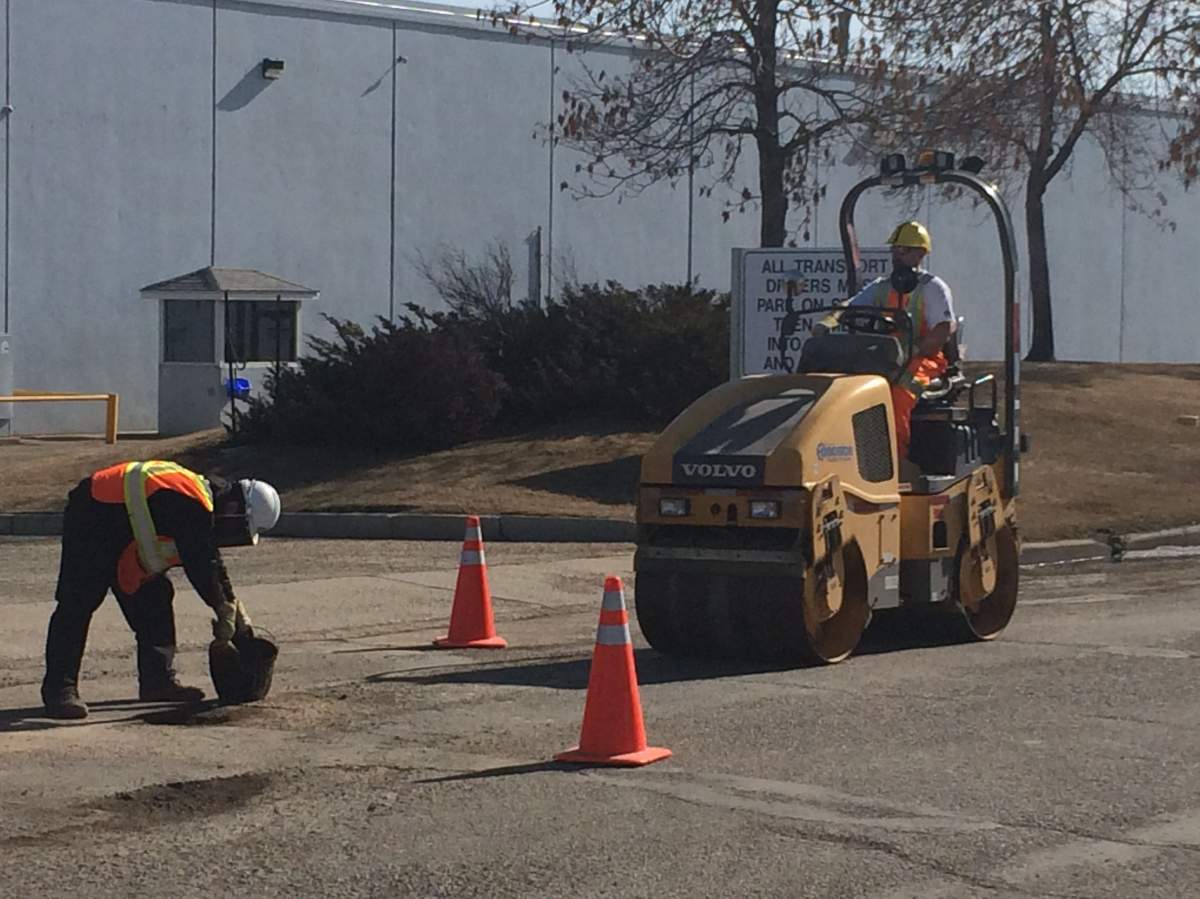WATCH ABOVE: The city is trying to find the latest and greatest asphalt that will give drivers a smoother ride. Kendra Slugoski shows us the lab.

EDMONTON — The city got an early start to pothole repair this season, but says it is studying different mixes to see which hold up better to freeze/thaw cycles.
“This is essentially our official kick off to spring,” said the city’s road boss, Bob Dunford, on Wednesday. “Potholes are the first order of business for this time of year.”
So far this year, the city has filled 65,000 potholes.
“We’ve actually got a pretty good early start on potholes this year,” Dunford added.
“The weather has been favourable for that.”
He said 2013 was the worst year so far for potholes, recording 750,000.
READ MORE: City crews tackling Edmonton’s ‘year-round’ pothole problem
The city is investing $55 million per year on arterial road rehabilitation over the next four years, but it will take a number of years to see the overall pay off when it comes to infrastructure. The budget for pothole repair is $5.9 million for 2015.
While the city realizes repairing roads and filling holes is essential, it also wants to determine the most resilient mixture to fill the potholes.
“We have had approximately 30 freeze/thaw cycles since the year began, and that definitely contributed to what drivers are seeing on the roads right now,” explained Dunford.

Get daily National news
So, research is being done at the Engineering Services Quality Assurance Lab to test how different mixes hold up to freeze/thaw cycles.
“Our study includes putting asphalt mix samples through multiple freeze/thaw cycles, then performing tests to see exactly how many cycles the samples can withstand before starting to deteriorate,” said Hugh Donovan, a Construction Services engineer.
“It’s our hope that continued research into asphalt mixes in northern climates will lead to the development of materials that will prolong the life cycle of roads in this extreme northern climate.”
Dramatic drops in temperature can cause the ground underneath roads to heave and the asphalt to crack. When temperatures rise, melted snow fills the cracks and when temperatures drop again the water freezes and expands, breaking down the asphalt. When vehicles ride over the damaged areas they loosen the material even more.
WATCH: See what it takes to make a pothole happen in a road.
“The issues that Edmonton is facing with its roads, potholes in particular, are not unique,” added Donovan.
He said the city has seen an increase in freeze/thaw cycles over the past five years. Each year, we have about 165 cycles.
“There is the potential that the research being done by Engineering Services will not only help Edmonton find materials that are right for its transportation network, but may also assist other municipalities determine what works best for them.”
City crews in each district search out and repair potholes during their day, but drivers are encouraged to call 311, use the 311 app or report a pothole online.
“We will address them on a priority basis, with severe damage in high traffic areas receiving attention from crews first,” said Dunford.













Comments